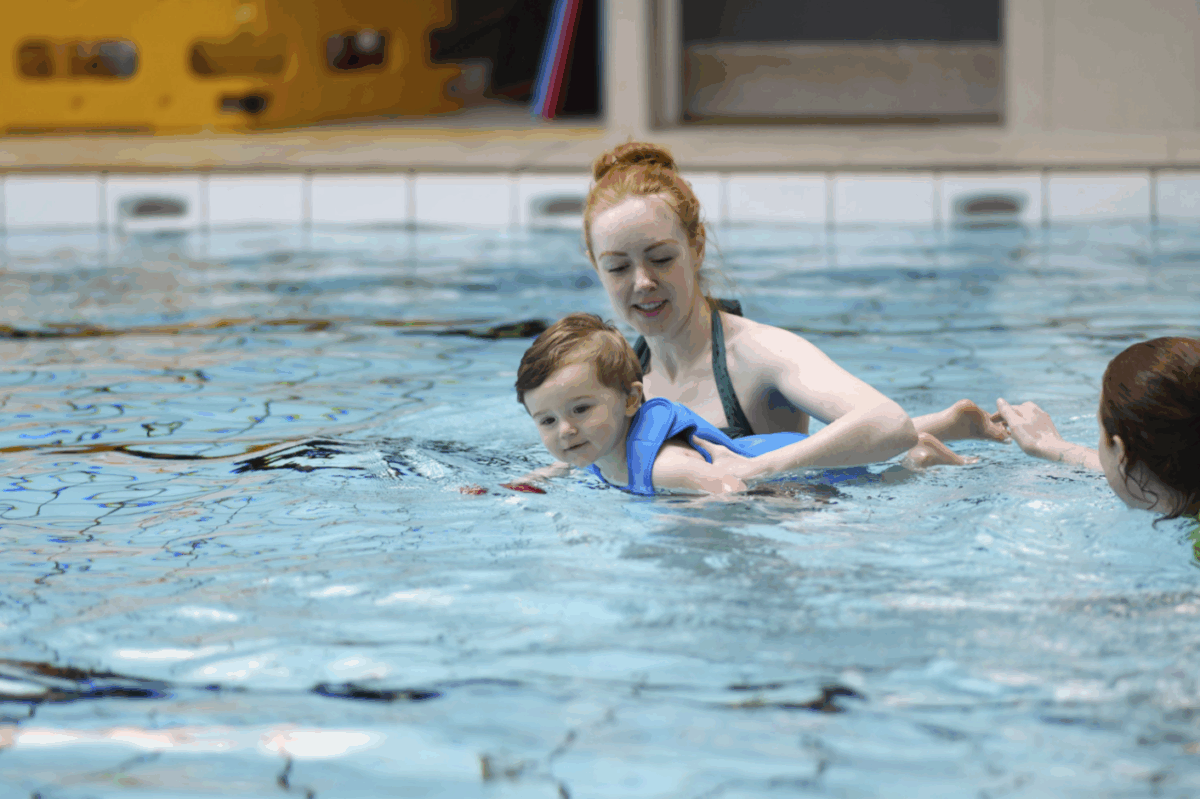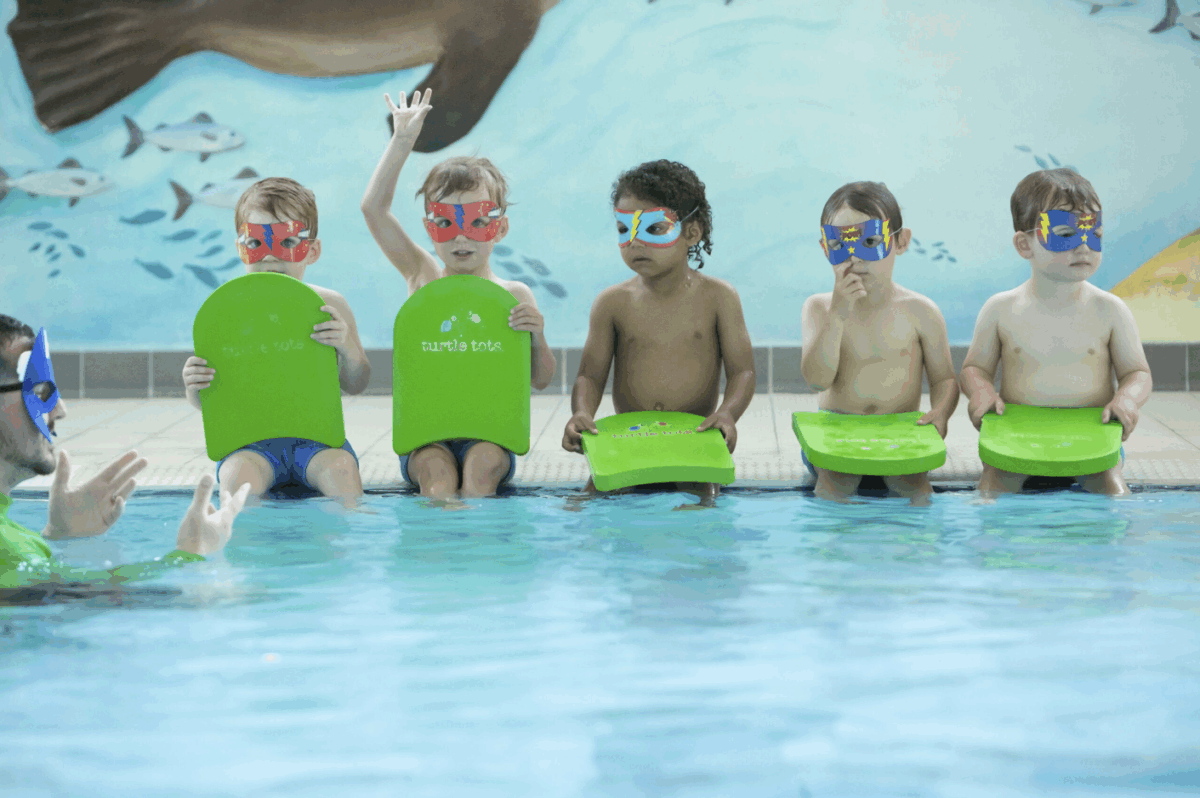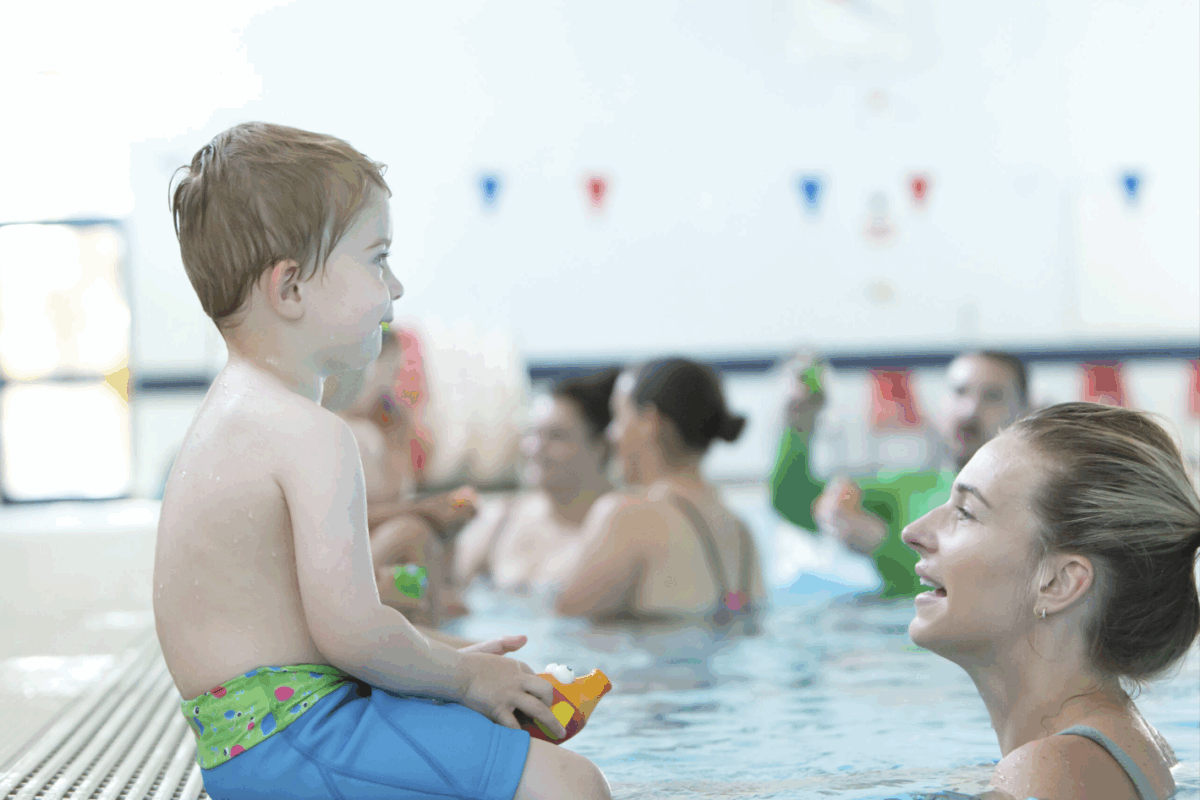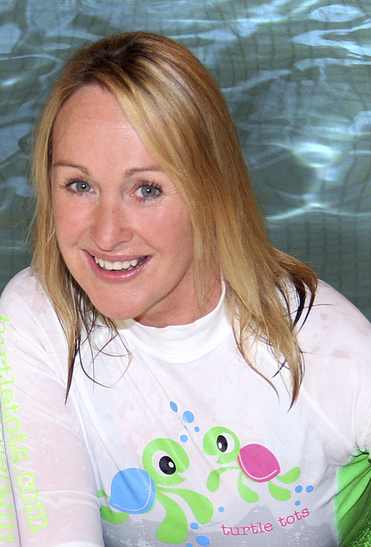By Gaby Lixton – co-founder of Turtle Tots, a multi-award-winning baby, toddler and children’s swim school.
Over recent years, there has been a concerning rise in the number of children in the UK who are unable to swim. Various factors, such as limited access to swimming lessons, lack of pools, increased screen time and the impact of Covid lockdowns combined with parent anxiety, have all contributed to this trend. Yet swimming is not just an enjoyable activity or a fun way to exercise; it is a vital life-saving skill that can prevent drowning (a leading cause of accidental death amongst children). Whether you have a young baby or toddler, there are some proactive steps you can take to support your child, even if the child has a fear of water, to ensure they develop essential water safety skills.
A child’s fear of water can stem from a young age and from various sources, from lack of exposure and negative experiences, to watching friends or adult relatives who are anxious around water, so it is important to create a positive experience from the outset.

FOR BABIES
Introducing your baby to the water can be an exciting and rewarding experience that lays the foundations for a lifetime of water safety and enjoyment. Swimming is not just a fun activity for you and your newborn; it also supports physical and emotional development and provides a unique bonding experience between parent and child. If you’re a new parent looking to take your baby swimming for the first time, here are some top tips to ensure a safe and enjoyable experience for both of you.
Listen to your body
With the right support and a warm pool babies can start enjoying the water from birth. New mums may need to wait a little while until their body has fully recovered, so if you would like to start your baby swimming journey as soon as possible, other family members may need to hop in the pool with the little one initially. Always look for swimming lessons that are specifically for babies and toddlers.
Have fun
Swimming should be a joyful experience for you and your new baby. Once you’re in the water, smile, sing songs and splash gently. This helps your baby associate swimming with fun from birth. Bring along bright and familiar bath toys to make the experience even more enjoyable and visual for your baby, creating a playful atmosphere.
Keep warm
Whether you are joining a baby swim lesson or taking your baby to a local pool, make sure the pool is warm to keep your baby comfortable. Ensure the pool has a shallow area with gentle entry points, making it easier for you and your baby to enter and exit the water. Babies are sensitive to temperature, so it’s crucial to ensure the water is warm enough. If you’re uncertain, check with the facility about the water temperature prior to swimming. After swimming, keep your baby wrapped in a towel to prevent chills as they get dressed and in cooler weather take a hat along for your baby to wear afterwards.
Choose your baby’s swimwear
Most baby and toddler swimming lesson providers will require your baby to wear a double nappy system. This is a reusable or disposable swim nappy with a neoprene nappy over it. Do check with your local swimming lesson provider or pool.
Neoprene baby wetsuits, wraps and warm-in-one’s help keep your baby warm in the water. Sleeved swimwear and swim hats protect your baby from the sun if you’re swimming outdoors or on holiday. Always remember to apply waterproof high factor sun cream to any exposed areas of your baby’s skin, even if it’s cloudy, to prevent sunburn.
Think safety first
Safety should always be your top priority when swimming with your baby. Never leave your baby unattended in or near the water, even for a second. Keep your baby close and cradle them in your arms or using a swim float designed for infants. No swimming aid is a substitute for an adult swimmer in the water for constant supervision.
Don’t rush it
Every baby is different, so it’s important to watch your baby’s reactions. your baby seems overwhelmed, take a break or try again another time. It’s best to move at a pace that is comfortable for your baby, so don’t rush the experience. Babies and toddlers pick up on your signals and will learn at a pace that is right for them.
Keep it short and sweet
For your baby’s first swimming experience, keep the session short. Around 20 to 30 minutes is usually enough. This helps prevent overstimulation and allows your baby to enjoy the experience without getting overtired. As they become more used to the water, you can gradually increase the length of time you spend in the water.

FOR TODDLERS & PRE-SCHOOL CHILDREN
Many young children have a fear of water. Acknowledging and validating your child’s feelings is the first step towards helping them overcome these fears. Discussing their worries openly will also foster greater trust and encourage a more positive attitude around the prospect of learning to swim. Here is some advice to help you get started.
Start slowly
For toddlers it is important to start slowly and always in shallow water where your child can comfortably stand. For younger children, allow them to play with toys and splash water to create a sense of fun. You can gradually introduce them to deeper water as their confidence grows. Well-fitted swimwear will also make swimming easier and enhance confidence – likewise sleeved swimwear and swim hats protect your child from the sun if you’re swimming outdoors or on holiday. Goggles can also help children to see underwater and reduce worries around getting water in their eyes.
Celebrate small victories
Once you are in the water, celebrate the small victories. Praise your child’s efforts regardless of the outcome and encourage them to keep on trying. The first step is getting an anxious child into the pool, following this, positive reinforcement is key to helping them to feel empowered and ensuring they associate the experience with fun and enjoyment. Trying some simple breathing exercises can sometimes help children to manage their anxiety before getting into the pool. You can also practice these techniques at home to give them some coping tools for when they are next faced with water.
Positive role modelling
It is important to remember that children look to adults for reassurance, so positive role modelling is a crucial aspect of encouraging your child into the water as well as keeping them safe. If your child sees you enjoying the water, they may be more inclined to give it a try. Age-appropriate professional swimming lessons are also a great way to boost your child’s experience around water and develop their confidence and technique.

Basic water safety
Beyond overcoming fears around water, it is important to educate you child around basic water safety. Here are five top tips to remember:
1. Learn to float – floating can be a lifesaver in an emergency, allowing children to conserve their energy while waiting for help.
2. Swim together – always encourage your child to swim with friends or family rather than alone.
3. Stay within designated areas – make sure your child understands the importance of staying within marked swimming zones and never jump or dive into unfamiliar or unsupervised areas.
4. Assess water conditions – make your child aware of the differences between calm and rough waters. Teach them to respect currents, tides, and waves and if swimming in the sea, try to swim where there is a designated lifeguard on duty.
5. First aid – learn some basic first aid and CPR so that you feel able to respond in an emergency.
About the expert
Gaby Lixton is the co-founder of Turtle Tots. Gaby made it her goal to help boost water confidence in babies and young children back in 2011 when she grew more than a little concerned about her own daughter’s water confidence and genuine fear of water. She met her business partner, Caroline Sparks shortly afterwards and they grew the business together launching across the UK and also internationally in Dubai and Ireland.

Today Turtle Tots is a multi-award-winning baby, toddler and children’s swim school franchisor headquartered in Bristol. Teaching vital lifesaving skills, the sessions aim to build water confidence from birth and create special, fun-filled memories for parents that last a lifetime. With 52 franchisees across the UK and internationally in the United Arab Emirates and Ireland, Turtle Tots operates a child-led swimming programme, teaching babies from birth, and also sells branded swimwear for babies and toddlers. Franchisees also deliver aqua-natal yoga classes for mums-to-be.
For more information, please visit turtletots.com


